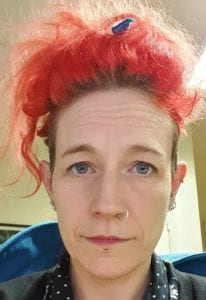Context:
The purpose of my City Fellow project is to share the learning and development of BOOST Finance, which, at its heart, is about delivering services differently, that puts the community in the driving seat and works on the principles of providing access to information, ensuring the information is understood and that individuals understand what action to take and are supported to take this action to move to a place of being able to take independent action. The Community Development principle is also about progressing these ideas forwards and looking at empowering local people to take control both as individuals and as collectives, exploring potential solutions on common issues and themes. The BOOST model demonstrates a genuine willingness by several organisations to share resources and work towards developing a common purpose and empowering communities to take action.
During this period and in addition to Bristol City Councils Impact fund, BOOST Finance Project has successfully been awarded additional monies from the C-19 Community Led Organisations Recovery Scheme to enable it to operate in a COVID19 safe way. BOOST Finance reconvened services at the end of October following assessments of how to facilitate the service and operate in a COVID19 safe way. With this additional funding we have been able to switch the service from a two morning a week drop-in to a five morning a week 1:1 managed appointment system. This additional funding has also enabled us to employ a Service Coordinator (a great progression route for one of our BOOST Volunteers) and Volunteer Trainer (in partnership with Talking Money) to pilot a volunteer training program to begin to develop learning and expertise being in the community and not just based on site. We have successfully recruited 6 volunteers and are continuing our recruitment drive. We have also widened our partnership, adding legal support services provided by Bristol Universities Law Clinic and Housing support provided by CHAS. We have also set up and begun running a membership-based Food Club in partnership with Family Action and FareShare. This service now has 56 members.
The BOOST Finance partnership now incorporates:
- Wellspring Settlement
- Community Volunteers
- Bristol Somali Resource Centre
- Talking Money
- BRAVE
- CHAS
- University of Bristol Law Clinic
- Family Action
- FareShare
- Bristol Credit Union
- West Of England Works Partner
Also, during this period we have drafted two papers outlining identified community issues and potential solutions. These papers have been forward to two boards to further influence potential informed approaches:
- In collaboration with Nick Sturge and Morag McDermot, we have compiled a paper ‘Recovering from Coronavirus – tackling unemployment –a joined-up approach’ that has gone to Bristol City Councils Economy Board that identifies gaps in effective working in Bristol’s economy around the gap in connectivity between decision making at city / region level and the reality of what is happening, variously, in specific communities; and the gap between employment opportunities, however well enabled and curated to be accessible, and people, who could work but have too many challenges to overcome to get there. The paper proposes a practical mechanism to help bridge both those gaps at the hyper-local level, and which aims to build trust and understanding across those gaps which aids systemic change and a model which can be adapted and applied (rather than ‘cookie-cut’) in other communities.
- A second paper, ‘Recovering from Coronavirus – tackling poverty’, highlighting the likely long–term impact of the Coronavirus pandemic, impacts that are already being felt and likely to continue to be felt for the next decade in some of the most disadvantage parts of our city and looking at new ways of meeting the need that was already high. This report promoted new and different solutions in light of a year of learning and not just the same solutions expecting different result. This promoted the ideas of BOOST Finance as a model and supporting community initiatives at a grass root level, in recognition of geographical and demographical difference. This paper has gone to ACFA championing an anti-poverty approach for Bristol based on community knowledge and expertise and building back better.
In partnership with the Personal Finance Research Centre as part of a strategic funding application we are in the process of setting up a Community Employment Research pilot aimed at reasserting missing community voices into the narrative of building back better and supporting communities set their own agendas for change based on localised ideas and community experience of direct impact.


